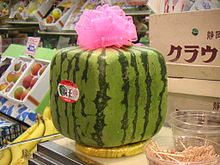Isaiah 1:8 The Daughter of Zion is left like a shelter in a vineyard, like a hut in a field of melons, like a city under siege. [New International translation.]
And the daughter of Zion is left like a booth in a vineyard, like a lodge in a cucumber field, like a besieged city. [Revised Standard translation.]
Summary: The prophet Isaiah lived in the 8th century before the birth of JESUS CHRIST. Isaiah’s name signifies “the salvation of GOD,” or “Yah is salvation.” He was called to prophesy to the Kingdom of Judah, [i.e., the daughters of Zion] about God’s judgment of the people for their rebellion and sin against God and about God’s future plan for salvation through the Messiah, Jesus Christ. Like many prophetic scriptures, there is a lot of imagery in the words of the message.
In Isaiah 1:8, the “Daughter of Zion” refers to the city of Jerusalem. Jerusalem, the city of David, was built on a hill called Zion and is given a “feminine” reference—“daughter,” probably because of its great “beauty.” The “field of cucumbers” and the “field of melons” refer to the same kind of fruit—fruit that was in great demand in this region because of their cooling qualities, especially given the hot climate. Melon and cucumbers were planted around the city. To protect the fruit, a shelter was often erected in the field so that a watchman could guard the field from birds, animals, thieves or anything else that might damage, destroy or steal the crop. This shelter was a lonely place. The fact that the booth or shelter had been abandoned, suggests that the fields around the precious fruit had been taken and the city of Jerusalem was surrounded or “besieged.”
The fact that such an essential regional fruit was abandoned and that the city fields were surrounded by the enemy were indications of the hopelessness of the situation that Jerusalem would soon find itself because of the people’s sinful ways. Despite Isaiah’s prophetic warning from GOD and Isaiah’s plea that the people “Heed the word of the Lord” and “listen,” the Israelites did not. Instead, they chose to continue down a path of Godlessness and self-destruction. As a consequence of their choices, the people were led into Babylonian captivity.
Watermelon Choices and Facts
Today, we have a variety of large of watermelons to choose from:
Seedless Watermelon
Picnic Watermelon
Icebox Watermelon
Yellow/Orange watermelons
See, “Watermelon Plant Varieties: Common Types of Watermelon,” by Amy Grant, www.gardeningknowhow.com.
Although they are called seedless, Seedless Watermelons actually have seeds, but not the mature black seeds that many adults grew up spitting out as kids. There are a number of varieties of seedless watermelons including: Queen of Hearts, Jack of Hearts, Crimson, Nova, Trio, Cotton Candy and others.
Picnic Watermelons tend to be larger and for that reason suitable for picnic gatherings. They are usually round, oblong or oval. Some varieties include: Jubilee, Crimson Sweet, The Black Diamond, All Sweet and the Charleston
Grey.
Icebox watermelons are smaller in size and were designed to fit in a refrigerator, feed a person or a small family. Some varieties include Sugar Baby, Mini lee and the Tiger Baby.
Orange/Yellow flesh watermelons come in a number of varieties, including Desert King, Yellow Baby, Yellow Doll and others.
Although Amy Grant does not mention them, there are other types of watermelon. One new type is called the Square Watermelon:

Square watermelons are actually cubes. They are grown in a box, which results in their shape. They were also created to fit more easily in a refrigerator and to cut more easily, since they do not roll. They are fashionable in Japan and tend to be very pricey, about $200 or more for people who are willing to pay for an eatable novelty. Watermelons can be grown to come in other shapes, including the shape of a heart.
Whatever their size and shape, melons are a good source of vitamin C and Potassium. They tend to be high in water content (often about 90%) and low in calories. A typical melon contains: 1 mg of sodium, 0.5 mg of copper, 100 mg of magnesium, 0.6 mg of manganese, 200 mg of phosphorus, 195 mg of potassium and 17 mcg of selenium. In addition:
- Melons contain L-citrulline, an amino acid that seems to protect against muscle pain;
- Melons contain more lycopene, an antioxidant, (i.e. a protection against free radicals forming in the body and against disease) than fresh
tomatoes; and
- Research has suggested that watermelon helps to reduce blood pressure and cardiac stress; however, anyone with these conditions should
discuss any health problems or dietary choices with their personal physician.
You can also choose organic or conventional melons. But whichever you buy, be sure to clean the surface of the watermelon with tap water and use a produce brush to remove surface dirt before cutting.
Choices
Life offers us a number of choices. There are healthy choices, harmful choices, frivolous choices as well as other types of choices that we make every day. Like the children of Israel, we must often face the consequences when we make poor choices.
Wednesday is a day to meditate, pray, learn and be mindful about the food choices and spiritual choices we make. It is a day of “hearing” and “heeding” the WORD of the LORD. It is a day of stewardship. It is a day of enjoying GOD’s harvest and blessings. It is a day to enjoy a spiritual message or goals with friends. It is a day of giving thanks for the friends who are a part of a Wednesday fellowship, or other fellowships at church, on the job and across various cities. It is a day we stand watch and become the “watchmen” and “watchwomen” over our own health, as we pray for GOD’s guidance.
So today “Stand Watch!”
Pray fervently for the wisdom and discipline to make the right choices and BE BLESSED!


